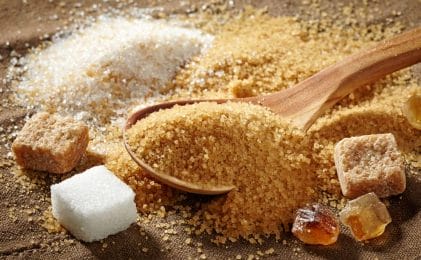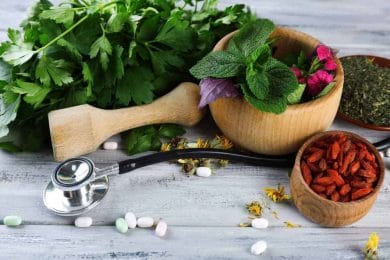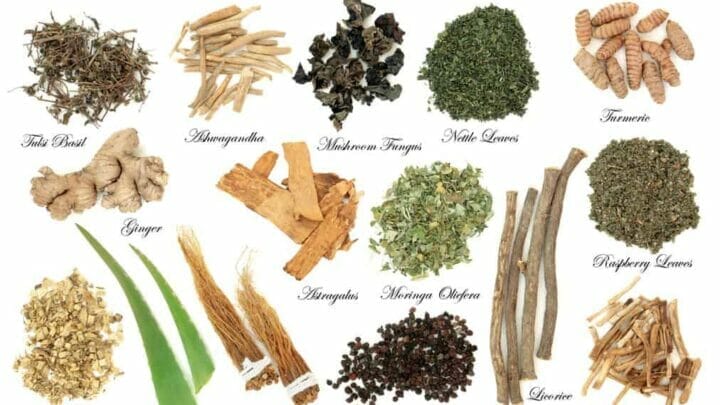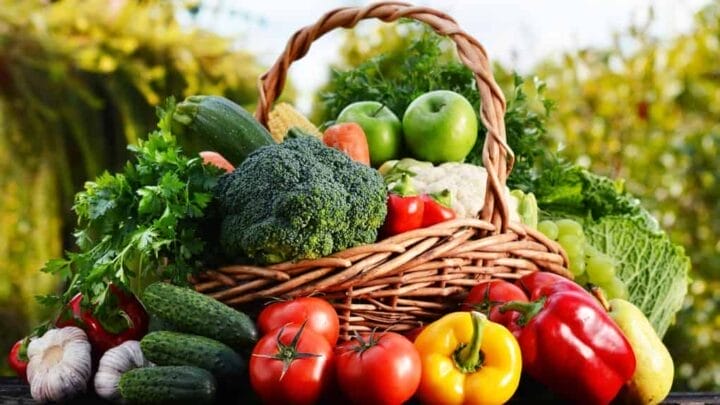
How to lower sugar – natural methods to effectively lower blood glucose levels
Thick volumes have already been written about the harmfulness of sugar, but most of us still consume too much of it, which negatively affects the entire body, slowing down many processes that constantly take place in it. Maintaining normal blood sugar levels should become our habit, and it’s worth knowing what causes uncontrolled spikes in blood sugar and how to deal with it naturally. If we do not do this, it can quickly turn out that the level of glucose in the blood, tested on an empty stomach, is much higher than the predicted norms, and such a state threatens toand the development of many dangerous diseases, including type 2 diabetes, caused by rising insulin resistance.
Contents
What is sugar, what are its sources and breakdown?

Sugar, also known by another name, sucrose, is a chemical compound classified as a carbohydrate, which is a disaccharide composed of two monosaccharides, glucose and fructose. The chemical formula of sugar is very complicated and difficult to remember, C12H22O11, and it takes the form of small colorless crystals. The name white sugar is therefore a bit misleading, it’s just that more of it makes us think it’s just that color. Sugar naturally occurs in many products, primarily fruits and vegetables, and the two most commonly used sources are:
- sugar beets, from which a multi-step refining process produces precisely the most harmful white sugar;
- sugar cane, and from it cane sugar is produced, to which molasses is added, thus obtaining the popular brown sugar.
There are also other varieties of sugar on the market, created by mixing it with various additives that affect the taste. There is also a division of sugars found in the products we eat every day, and we divide them into:
- simple sugars, primarily the so-called monosaccharides, the aforementioned glucose and fructose, and disaccharides, namely lactose and sucrose;
- complex sugars, and these primarily include starch found in a huge number of foods;
- free sugars, i.e. fructose-glucose sugar, corn syrup or sucrose intentionally added to a product to improve its taste, but very often in an amount that increases sugar levels in the body.
What are the acceptable standards for fasting blood sugar levels?
Even slightly elevated blood sugar levels can pose a serious threat to our health, becoming a cause of hyperglycemia, among other things. Therefore, it is worth knowing what is the acceptable concentration of glucose tolerated by the body, and strictly defined norms are:
Normal blood sugar level
Its maintenance is even essential, affecting the proper functioning of the entire body, and the norm of blood glucose, of course always measured on an empty stomach, should be between 77 and 99 mg/dl (3.9 to 5.5 mmol/L).
Elevated blood sugar levels
If you start to feel in any way that the amount of glucose in your blood is too high, it may mean that the level of glucose is too high, already requiring consultation with a doctor or nutritionist, as there is a risk of pre-diabetes. The fasting sugar level measured in this case is usually between 100 and 125 mg/dl (5.6 to 6.9 mmol/l).
Blood sugar levels that are too high
We can speak of such a situation, and in this situation the amount of glucose in the blood is higher than 125 mg/dl (7.0 mmol/l). This is a condition that requires an immediate visit to a diabetic doctor for further tests for the possibility of developing diabetes, a disease that is even life-threatening.
Blood sugar levels that are too low
Here we present the norms, causes and consequences of too high levels of glucose in the body, but almost thesame threat to health can be posed not only by excess blood sugar, but also by its possible deficiency, measured by fasting amounts below 77 mg/dl (3.9 mmol/l). In such a case, one must expect hypoglycemia, or hypoglycemia.
The most common causes of elevated blood glucose levels
It is definitely worthwhile, on a regular basis and when noticing any abnormalities, to monitor blood sugar levels, which will allow timely detection of health problems that may arise from its increases. In order to be able to make such a diagnosis on your own, you need to know beforehand all the possible reasons why this is happening, and then apply proven, preferably home remedies to lower them. And when it comes to sugar spikes, we are very often guilty of it ourselves, and specialists include among the most common causes:
Improper diet

That is, in short, diet, not only causing blood glucose values to rise above the norms outlined above. It can also become the cause of increasing overweight and obesity, which is also a threat to health and, in some cases, life. Abdominal obesity is particularly dangerous, so several groups of products should be abandoned and must disappear from our menus:
- white sugar and all products sweetened with it;
- carbonated drinks, syrups and juices with added glucose-fructose sugar;
- excess sweets, which can be replaced with healthy snacks with a low glycemic index;
- fruits with a high sugar content, and quite a lot of it is in bananas, grapes, mangoes, grapefruits, pineapples and figs, and of our native fruits we must be careful with pears, currants, cherries and even some varieties of apples;
- some vegetables, equally causing a rise in sugar levels and having a high glycemic index, and these include potatoes, carrots, corn, beets, peas. So it is worth limiting them in favor of those that allow you to quickly beat sugar, peppers, broccoli, asparagus, spinach, zucchini, green lettuce, cauliflower, green cucumber and garlic;
- white bread and white rice, pasta made from wheat flour, fine-grained groats, it is better to replace them with counterparts made from dark flourflour, including coarse groats, which have a great deal of dietary fiber in their composition, which improves digestion, counteracting sugar spikes;
- sweetened dairy products;
- excess alcohol.
Sedentary lifestyle
Lack of physical activity, a daily dose of exercise, directly affects the way we eat, causing not only unmanageable weight gain, but also digestive disorders resulting from, among other things, improper intestinal peristalsis and a slowdown in metabolic processes taking place in the body. No one is forcing us to immediately engage in a sport, but an hour’s walk after a meal is highly advisable. At the same time, we should remember that too much exercise even leaches sugar, so it is worth eating a wholesome meal rich in carbohydrates beforehand.
Taking certain groups of drugs
High blood glucose levels can also be caused by taking certain groups of drugs, so it is necessary to carefully read the leaflet of the specific drug, and if I have any problems with blood sugar levels, we should inform the prescribing doctor. You need to be especially careful with such pharmaceuticals as glucocorticosteroids, some drugs with psychotic effects, drugs taken to prevent rejection of transplants, and if in any doubt, consult your doctor.
Stress and other states of nervous tension
A very important, but often ignored factor causing the so-called high sugar, is long-term stress, which negatively affects many health issues and can upset almost the entire body. Living under stress negatively affects the functioning of the pancreas and its production of insulin, and it is, after all, this hormone that affects sugar levels, their rise, fall, or compliance with the norms described above.
How to naturally lower blood glucose levels, that is, to beat sugar?

There are many ways to quickly lower sugar levels, but most often we opt for pharmacological solutions, completely disregarding the natural ones, which have been used for decades and mostly have no side effects. We already know how it lowers glucose to eliminate certain foods and replace them with healthier counterparts, both of which we mentioned in an earlier section of the text.
We also learned that we can lower higher blood sugar levels by keeping fit and avoiding stressful situations. However, we can also lower sugar fairly quickly with the help of properly selected herbs and plants with proven, proven medicinal properties, of which the most commonly used are:
Cinnamon
Cinnamon root is primarily known for its kitchen uses, but it is worth knowing that it also effectively and quickly lowers sugar. It stimulates insulin receptors on the surface of cell membranes and thus ensures that blood glucose levels do not rise, in addition to speeding up metabolism and reducing LDL cholesterol at the same time.
White mulberry
A fruit commonly known to all phytotherapy lovers, allowing to reduce too high sugar in our blood, which is worth having in the home medicine cabinet. We should use them if we eat too much food with a high glycemic index, which allows you to effectively lower, while having a beneficial effect on digestion and maintaining proper levels of triglycerides and cholesterol in the blood. White mulberry also slows down the absorption of glucose from what we eat, breaking down excess sucrose and starch.
Fenugreek
Another plant with medicinal properties that allows to significantly reduce sugar levels in the body, especially recommended for people with type 1 diabetes. The verified effect of fenugreek is to inhibit blood sugar spikes immediately after a meal and to increase insulin secretion by the pancreas thanks to the presence of mucilaginous substances, and a unique amino acid, 4-hydroxyisoleucine.
Clary sage
Every proponent of natural medicine has probably heard of sage and its numerous health-promoting properties. However, few people realize that it can beneficially affect sugar, regulating and maintaining its normal level in the blood. It is worth remembering this, and the effect of sage extracts and dietary supplements having it in their composition is, among other things, the activation of processesw leading to the removal of excess fatty acids, thus increasing the body’s sensitivity to insulin.
Dandelion
A good and recommended way to lower blood sugar levels is to use dandelion, the effect of which is appreciated by more and more people struggling with various stages of diabetes. Blood sugar levels are affected by the inulin contained in dandelion, a chemical compound that enables the regulation of carbohydrate metabolism, inhibiting the excessive absorption of glucose from food and lowering the glycemic index of products in which it is too high.
Sources:
- https://www.healthline.com/nutrition/too-much-sugar
- https://www.healthline.com/nutrition/15-ways-to-lower-blood-sugar
- https://www.healthline.com/nutrition/cinnamon-tea-benefits
- https://www.healthline.com/nutrition/white-mulberry#what-it-is
- https://www.healthline.com/nutrition/dandelion-benefits
- https://www.healthline.com/health/type-2-diabetes/fenugreek-blood-sugar
- https://www.healthline.com/nutrition/sage
- https://www.healthline.com/nutrition/sage-tea



